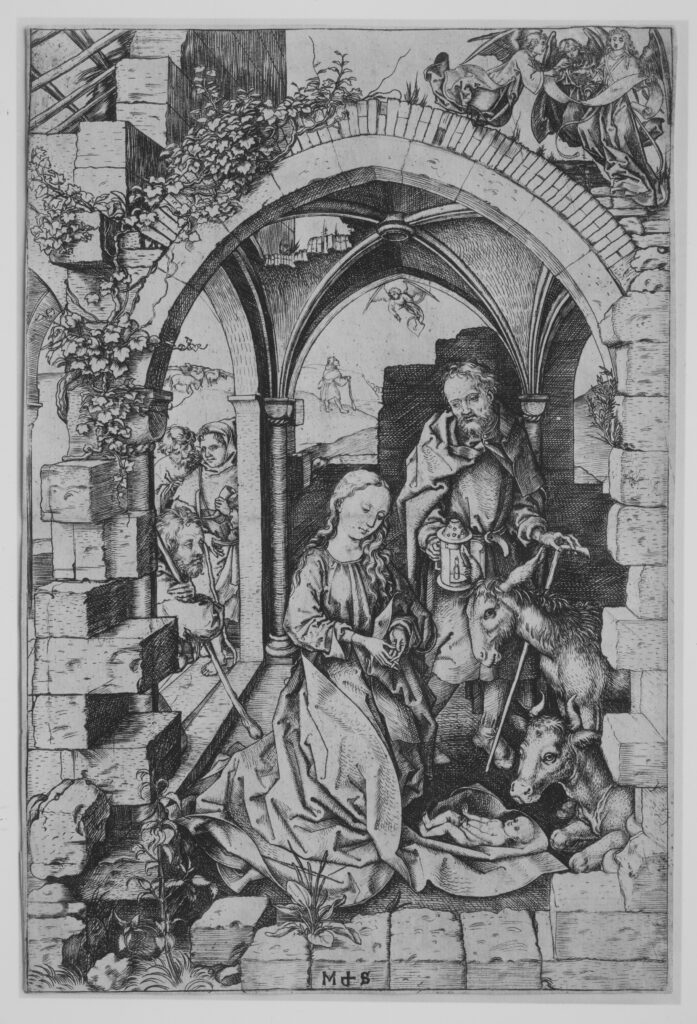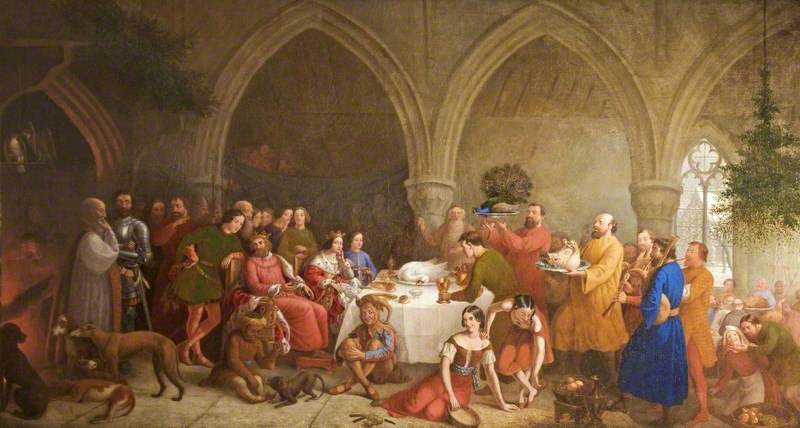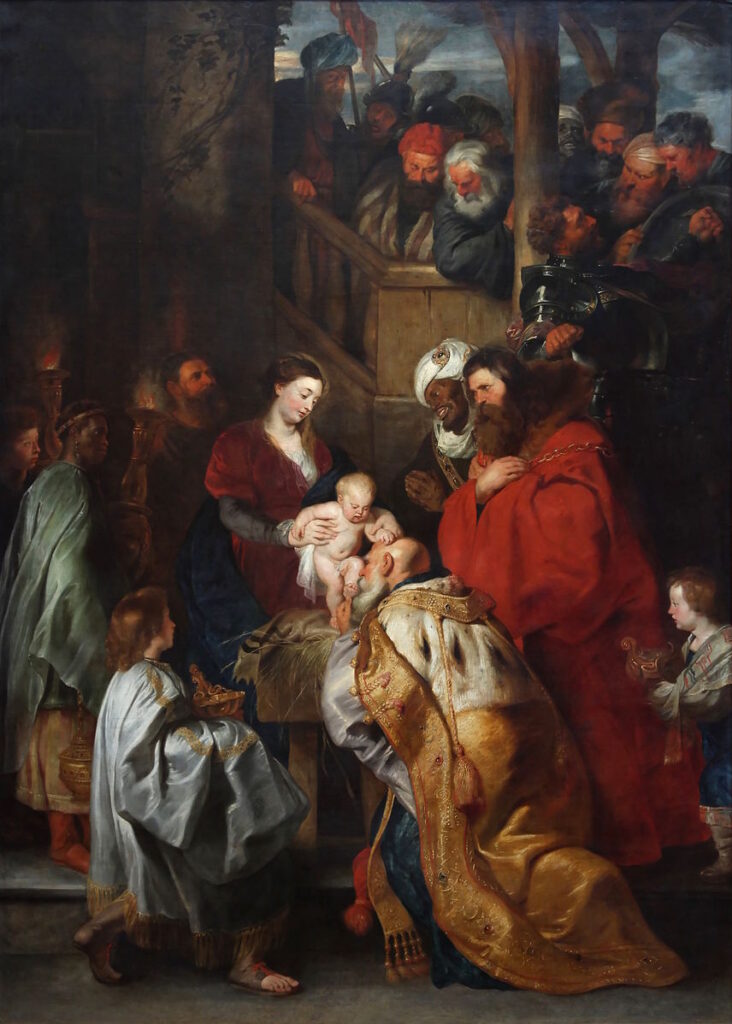Christmas traditions are an important part of developing the culture of your home life. Looking to the past is a good source of inspiration. However, finding how these old ways can meld with your modern life can be a bit more tricky.

There are plenty of blogs and podcasts out there, both religious and secular, that rant against the consumer-obsessed nature of the modern Christmas holiday. Of course, I agree with those sentiments. But you don’t need me to add yet another rant on the same subject. My main point of this article is how one can gradually move toward more conscientious, holistic Christmas traditions
Bear in mind, this is coming from a religious, traditional Catholic point of view. We normally go to a traditional Latin Mass, and have no qualms about embracing the rich Christian heritage of the holiday season.
Homesteading and Christmas Traditions
In the 21st century, the homesteading culture and the rediscovery of Christmas traditions really go hand-in-hand. Look at the similarities:
To be a homesteader in the 21st century is very much a conscientious decision. It entails a discerned change in lifestyle that is generally in opposition to the consumeristic culture of the modern era that most of us grew up with. To take on the homesteading existence means rediscovering your forgotten roots and way of life.
Christmas traditions follow much in the same vein. We have seen through the shallow aspects of modern society and we wish to form ourselves and our children on something deeper.
Likewise, Christmas traditions were formed around the natural cycles of the agrarian calendar. Anyone who returns to the land will start to understand this rhythm.
A Rich Heritage of Forgotten Traditions
There is a dizzying array of ancient Christmas traditions and practices from the past. It is a sheer pleasure reading about and rediscovering all of them. They could range from the contemplative to the raucous, the religious to the superstitious. I like to imagine how life would be if the whole community still observed these traditions.
Talking about these traditions and their origin is honestly a whole subject that is too lengthy to get into here. But for a start, I highly recommend watching the BBC Tudor Monastery Farm Christmas. It gives you a good depiction of what it may have been like–at least in an old English setting.

Christmas lasts longer than you think…
One of the best things to realize about the traditional Christmas is that it does NOT last for just one day. It is a whole season! According to the Church calendar, the actual religious high feast lasts for 8 days (called an octave). Think of all the dizzying preparation that goes into trying to fit it all in on the 25th. For our busy family life, it is freeing to know that we have a much longer period to do all that we would like to do to observe the holiday.
Yet after the Octave, Christmas continues on! Ever heard of the Twelve Days of Christmas? As a kid, I was never taught the concept of an extended Christmas season. Why twelve days? Well, on the 6th of January (the twelfth day of Christmas), we celebrate Epiphany (when the Magi from the East came to adore Jesus).

Christmas over yet? Well, not exactly! In the Church liturgy, the Christmas season also includes Candlemas (2 February). These also have their own beautifully unique traditions that are for another post.
Growing Traditions Organically
Many of these ancient holiday traditions are so culturally rich in their heritage and symbolism. Someone like myself often asks why such practices were discarded in preference to the superficialities of the modern era. However, as to revitalising these traditions–there is only so much you yourself can do. After all, these customs naturally grew up over two thousand years. Living traditions are only sustainable through a living community. Thus only way to give life to old traditions is incorporating whatever will naturally mesh well in your own particular family dynamics.
Subtle Ways to Grow in your Christmas Traditions
With that, I have a few suggestions based off of what I been learning over the years:
- Make traditional food and drink, like Glühwein and gingerbread (from scratch, with actual spices). Learning about the historical context of these make them more enjoyable (to me at least)
- Read up on the Christmas practices of the past, especially pertaining to your own ethnic background. If any of these are attractive enough, maybe try reintroducing some of them to your family. See how they respond to it.
- Homemade gifts: we live in a very craft-minded home. Dedicating time to make gifts for each other is very much an act of love. It requires a lot more forethought and energy than buying gifts online. The Advent season is a prime time for this that helps prepare your own self interiorly for the coming Christmastime.
- Spread out different Christmas-related events over the next twelve days. It’s better than trying to cram it all in one day!
- Make music together. Perhaps you are musical in your house, and perhaps not as much. But even if no one can play an instrument in your home, you can at least memorize and sing a traditional Christmas song or two! We recommend learning this ancient antiphon that is sung for the Advent and Christmas seasons.
- Plan festivities or social gatherings for Epiphany. Read about the Twelfth Night Cake . It’s a way of making the full Twelve Days go out with a bang!
- Take some time off of work for more than just the 25th of December, if possible. And even if you can’t separate yourself from the pace of the modern work requirements, you can at least find ways to make the days unique and different from the rest of the mundane daily life.
- Remember, if you fall short of your expectations of things you want to do this year, there is always next year! Be patient and it grow organically.
- Lastly, but most importantly, keep Christ in Christmas by keeping Mass in Christmas!
This is just scratching the surface of a very deep subject. But they are at least some initial thoughts from my personal experience. In the end, my goal with such things has not necessarily been to “go back in time”. Rather, I try to “look back in time” to see how my present life in the 21st century can be beautified through it. But that’s me…
God Jul! (Merry Christmas!)
~ Nathanael


Leave a Reply